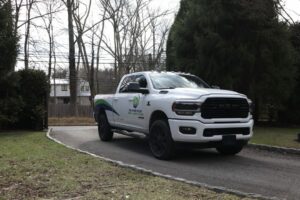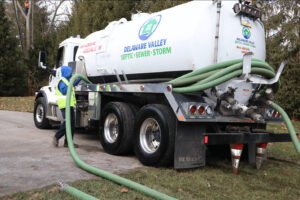Stormwater runoff occurs when rain and snowmelt flow over impervious surfaces such as paved roads, sidewalks, and rooftops. When it rains, these developed areas don’t absorb the water, so it flows into nearby waterways or storm drains.
Unfortunately, stormwater runoff can lead to flooding, erosion of stream banks, and increased pollutants being released into various waterways, making it a major environmental issue affecting communities.
This article will discuss what causes stormwater runoff, its impacts on the environment, and solutions you can do to reduce its occurrence.
What is Stormwater Runoff, and What Causes It?
Rainwater runs off impervious surface areas that don’t naturally absorb water, such as roads, roofs, and parking lots. The more impervious surface area there is, the more stormwater runoff will flow into nearby streams and rivers.
Buildings, sidewalks, and other projects have replaced natural vegetation and soil in urban areas. As a result, more water doesn’t absorb into the ground and runs into storm drains.
Changes in land use can also cause stormwater runoff. For example, agricultural activities such as excessive fertilizer application and soil tillage can increase soil erosion, resulting in more water running off the land.
Homeowners can also cause stormwater runoff through improper lawn maintenance, large amounts of hard surfaces on their property, and poorly maintained or installed gutters and downspouts that cause water to run into the street. Additionally, stormwater runoff occurs after grass and topsoil become fully saturated, causing surface water to be unable to percolate through the surface, resulting in runoff. To address this issue, surface catch drains and basins in residential environments can be installed to catch every drop of water from roofs and impervious surfaces, ensuring that water problems are minimized during rain events.
Why is Stormwater Runoff a Problem?
Stormwater runoff is a significant source of water pollution, impacting the health of people and the environment in many cities and towns worldwide.
As it flows, stormwater runoff collects a variety of pollutants from the land, including trash, oil, and chemicals from industrial sites and urban areas. These pollutants can be toxic to wildlife and humans and degrade water quality in streams, rivers, and lakes.
What’s in Stormwater Runoff?
Stormwater runoff is often contaminated with fertilizers, pesticides, oil, grease, heavy metals, road salt, and other hazardous chemicals. Stormwater runoff also contains sediment and other debris, such as leaves, grass clippings, and other organic materials, such as bacteria.
What Are the Human and Environmental Impacts?
Because storm drains discharge their contents into water bodies, the pollutants in stormwater runoff can harm the environment and humans, resulting in the following impacts.
- Contamination of drinking water
- Human health problems.
- Harm to aquatic life
- Ecosystem imbalance
- Clogged waterways, flooding, and damage to public and private property
- Erosion
What You Can Do to Reduce Stormwater Runoff
By taking the necessary steps to reduce stormwater runoff, homeowners can help protect the environment and prevent flooding, erosion, and water pollution.
- Capture rain from your roof in a rain barrel
- Direct gutters and downspouts toward vegetation
- Clean your home’s storm drain
- Plant a rain garden and trees on your property
- Install a permeable pavement or a green roof
- Reduce pesticide use and dispose of hazardous materials properly
Maintain Your Septic System to Prevent Stormwater Runoff
By maintaining your septic system regularly, you can easily prevent it from failing and releasing potentially hazardous runoff that could pollute nearby streams and waterways. Keep your septic system running at its best. If you’re a Delaware, Chester, or Montgomery County homeowner, contact the experienced professionals at Delaware Valley Septic, Sewer, and Storm for expert septic maintenance.




